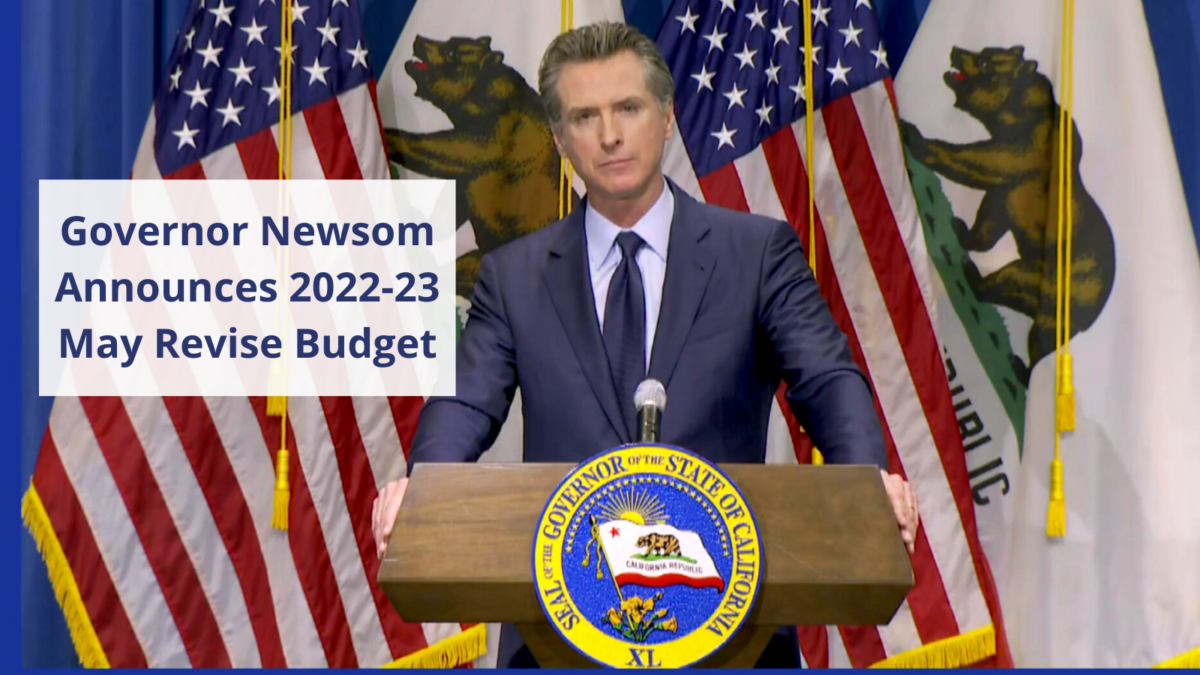Last Friday, May 13, Governor Gavin Newsom released his May Revise budget, which is an update to his January budget based on more accurate tax revenue. The May Revise is a staggering $55 billion higher than January, and includes $49.2 billion in discretionary surplus. The Governor’s budget included some proposals that will impact California’s intellectual and developmental community, but did not include The Arc & UCP’s priority proposals to address the workforce shortage crisis in regional center services and supports. The Governor’s budget will now be discussed and negotiated with the priorities of the Legislature, resulting in a compromised budget by mid-June. The Governor’s proposals include:
- Training Stipends—$127.8 million to provide up to two $500 training stipends (with an additional $150 for taxes and administration) for Direct Support Professionals (DSPs)
- Internships for Workers who Provide Direct Services—$22.5 million to implement a three-month training and internship program intended to establish an entry point into DSP career paths. This proposal also includes up to two $500 retention stipends for workers.
- Tuition Reimbursement Program—$30 million to establish a tuition reimbursement program for regional center service coordinators pursuing advanced degrees in health and human services-related fields.
- Pilot for Remote Supports—$5 million to pilot a program aimed at developing remote supports using technology systems to increase consumer independence and, when chosen and safe, reduce in-person and around-the-clock services.
- Early Start – The May Revision includes $6.5 million General Fund in 2022-23, increasing to $29.5 million General Fund in 2024-25, to support adjustments in identifying children with qualifying signs of developmental delays. This proposal includes statutory changes revising the Early Start qualification threshold from a 33 percent delay to a 25 percent delay in one of the specified assessment areas; separating communication delay assessments into expressive and receptive categories; and highlighting Fetal Alcohol Syndrome as a risk factor for intellectual and/or developmental delays. These changes are intended to engage families sooner with early intervention services. Following Early Start, and depending on subsequent assessments, some children may continue receiving services through Provisional Eligibility or Lanterman Act Services.
- Half-Day Billing – The Governor’s propose May Revise includes a proposal to permanently eliminate the half day billing policy for regional center providers.
- ICFs – Maintain 10 percent rates for Intermediate Care Facilities for the Developmentally Disabled.
- SSI/SSP – The May Revision includes $3.1 billion General Fund in 2022-23 for the SSI/SSP program. The average monthly caseload in this program is estimated to be 1.1 million recipients in 2022-23. A 5.9-percent federal SSI cost-of-living adjustment and 24-percent SSP increase took effect on January 1, 2022, bringing the maximum SSI/SSP grant levels to $1,040 per month for individuals and $1,766 per month for couples. CAPI benefits are equivalent to SSI/SSP benefits.

